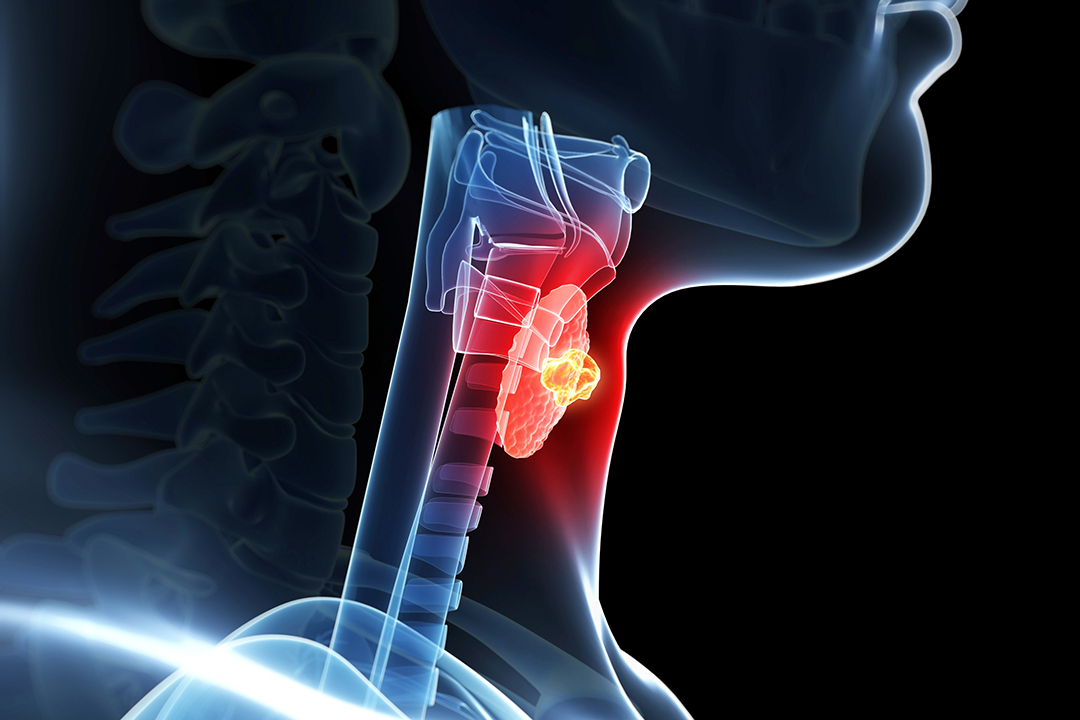Dr. Simone Scumpia answers all your questions about the thyroid.

We’ve all heard that phrase, “I’m sure she just has a thyroid problem.” The thyroid, a butterflyshaped gland in the lower neck, might be best known for how it can plague a person’s metabolism, sometimes resulting in weight gain. But when left untreated, hormonal imbalances in the thyroid can also cause devastating effects to the cardiovascular system, reproductive system and other major organs. Curious about just what else the thyroid is responsible for, Austin Woman reached out to Dr. Simone Scumpia of Austin Thyroid and Endocrinology to gain some insight.
Austin Woman: What are the hormones in the thyroid gland, and what do they control in a woman’s body?
Simone Scumpia: Thyroxine [or T4]and triiodothyronine [or T3]. They control metabolism and smooth out every action of every cell in the body in both men and women.
AW: What is the most significant, short- or long-term effect of thyroid hormonal imbalance?
SS: There is no short- or long-term effect. It depends on the rapidity of the onset of the imbalance. However, low [levels of hormones in the]thyroid slow metabolism and slow down all cell activities. High [levels of hormones in the]thyroid speed up the metabolism and speed all body activities.
AW: How do these hormonal imbalances affect women, as opposed to men?
SS: Thyroid hormones have the same effects at the cell level in men and women. The only difference is that the response of the reproductive system is different. In women, it might give irregular menses and infertility, and in men, lack of libido and sometimes, infertility.
AW: How do the hormonal imbalances affect women at different ages?
SS: The only difference is that in the very young and the very old, the symptoms may be masked and not really apparent. There is no real difference, per se, by age.
AW: Could too much of one nutrient cause a hormonal imbalance?
SS: The only nutrient which should be avoided at all times is iodine—for example: kelp, seaweed and any preparation with iodine—since it blocks the thyroid hormone release and then, after two to four weeks through an escape phenomenon, it accelerates the production of the hormone to dangerous levels. [These supplements] should be avoided at all ages and particularly during pregnancy and old age. If, however, you are on yet another fad diet, iodine levels should be checked and supplementation should be done under the care of a medical doctor. Iodized salt is fine.
HYPOTHYROIDISM VERSUS HYPERTHYROIDISM
In a nutshell, hypothyroidism is when the thyroid underproduces hormones, and hyperthyroidism is when it overproduces them. Hypothyroidism is the most common type of thyroid disorder and affects an estimated 15 million Americans, particularly women and the elderly. Hyperthyroidism is less common, affecting an estimated 1 to 2 million Americans, and is more prevalent among women in their 30s and 40s.
SYMPTOMS
Hypothyroidism: Fatigue, irregular menstrual periods, impotence, high cholesterol, hoarse voice, mood swings, difficulty swallowing, forgetfulness, intolerance to cold and dry, coarse skin and hair.
Hyperthyroidism: Irritability, atrial fibrillation, congestive heart failure, osteoporosis, nervousness, sleep disturbance, muscle weakness, tremors, enlarged thyroid (goiter), irregular menstrual periods, heat intolerance, weight loss, vision problems and eye irritation,
TREATMENT
Hypothyroidism: To replace the missing hormones, the preferred treatment involves supplementing the body’s naturally producing hormones with a synthetic hormone tablet, levothyroxine sodium, which is generally taken for life.
Hyperthyroidism: Treatment methods include anti-thyroid drug therapy, which blocks thyroid hormone production; radioactive iodine treatment, in which the overactive thyroid is disabled and reduced in size; and thyroid surgery to remove part or all of the gland, a method that is usually used to treat very young patients with Graves’ disease and older patients with diseased thyroid glands. Austin Thyroid and Endocrinology is the only endocrine office in Austin that administers radioactive iodine onsite.

